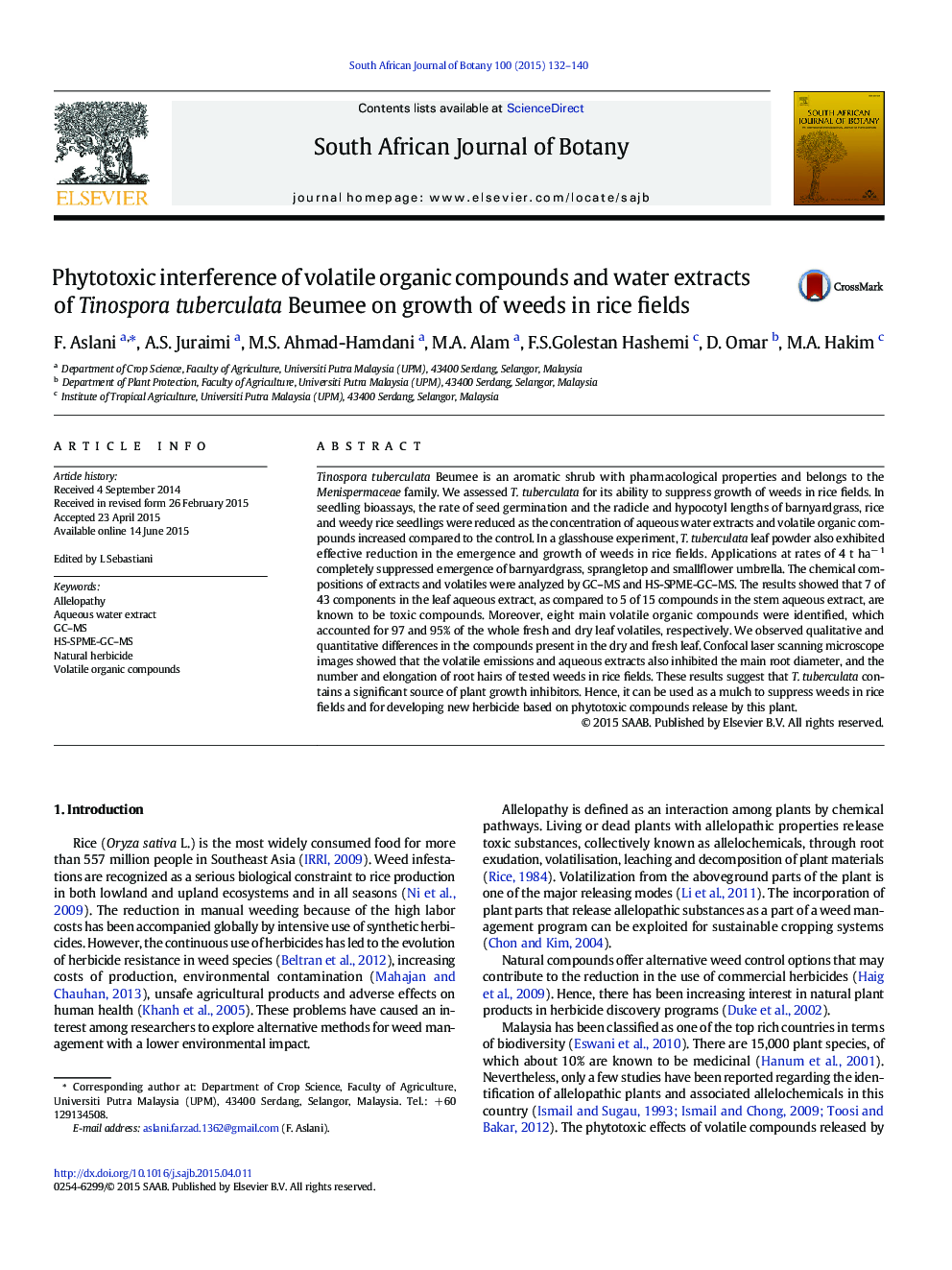| Article ID | Journal | Published Year | Pages | File Type |
|---|---|---|---|---|
| 4520382 | South African Journal of Botany | 2015 | 9 Pages |
•Extracts of Tinospora tuberculata and volatile compounds reduced the initial growth of barnyardgrass, rice and weedy rice.•T. Tuberculata tuberculata leaf powder exhibited effective reduction in the emergence and natural weed growth in paddy soil.•GC-MS and HS-SPME-GC-MS results suggest that T. tuberculata contains a significant source of plant growth inhibitors.•The volatile emissions and extracts inhibited the root diameter, AND the number and elongation of root hairs of tested weeds.
Tinospora tuberculata Beumee is an aromatic shrub with pharmacological properties and belongs to the Menispermaceae family. We assessed T. tuberculata for its ability to suppress growth of weeds in rice fields. In seedling bioassays, the rate of seed germination and the radicle and hypocotyl lengths of barnyardgrass, rice and weedy rice seedlings were reduced as the concentration of aqueous water extracts and volatile organic compounds increased compared to the control. In a glasshouse experiment, T. tuberculata leaf powder also exhibited effective reduction in the emergence and growth of weeds in rice fields. Applications at rates of 4 t ha− 1 completely suppressed emergence of barnyardgrass, sprangletop and smallflower umbrella. The chemical compositions of extracts and volatiles were analyzed by GC–MS and HS-SPME-GC–MS. The results showed that 7 of 43 components in the leaf aqueous extract, as compared to 5 of 15 compounds in the stem aqueous extract, are known to be toxic compounds. Moreover, eight main volatile organic compounds were identified, which accounted for 97 and 95% of the whole fresh and dry leaf volatiles, respectively. We observed qualitative and quantitative differences in the compounds present in the dry and fresh leaf. Confocal laser scanning microscope images showed that the volatile emissions and aqueous extracts also inhibited the main root diameter, and the number and elongation of root hairs of tested weeds in rice fields. These results suggest that T. tuberculata contains a significant source of plant growth inhibitors. Hence, it can be used as a mulch to suppress weeds in rice fields and for developing new herbicide based on phytotoxic compounds release by this plant.
